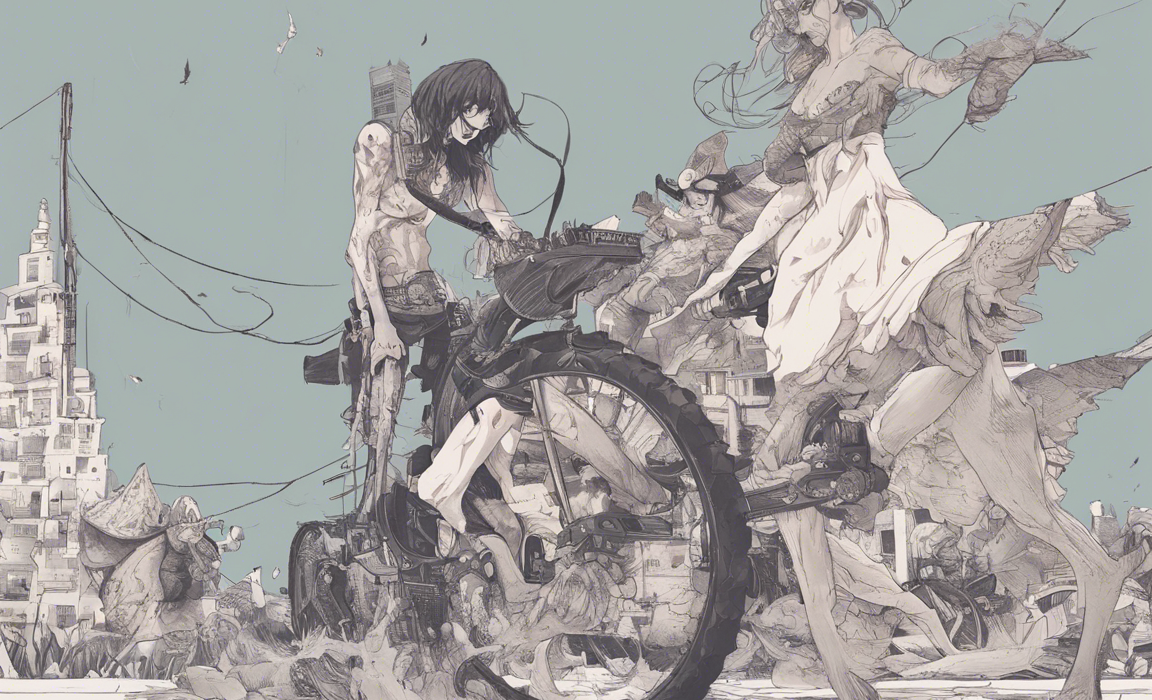Have you found yourself feeling stuck in a creative rut, producing work that no longer excites you or lacks the innovative spark it once had? As a creative individual, whether you’re a writer, artist, musician, or filmmaker, it’s natural to evolve and desire to explore new avenues for self-expression. One powerful way to reignite your passion and artistic vision is by transforming genres.
Exploring different genres can breathe new life into your work, challenge your skills, and open up opportunities for growth and experimentation. Whether you’re looking to transition from one genre to another or blend elements from multiple genres, the process of changing your creative path can be both daunting and exhilarating. In this guide, we’ll delve into the steps and strategies you can employ to successfully navigate this transformation and embrace the bold, new directions your creativity can take.
Understanding the Motivation Behind Genre Transformation
Before embarking on a journey to transform genres, it’s essential to reflect on your motivations and goals for making this shift. Are you feeling constrained by the conventions of your current genre? Do you seek to reach a different audience or explore themes and styles outside of your comfort zone? By clarifying your reasons for wanting to change genres, you can better define the direction you wish to take and set clear objectives for your creative transformation.
Key Steps to Navigate Genre Transformation
- Self-Reflection and Evaluation:
- Take the time to assess your current work and identify what aspects no longer resonate with you.
-
Reflect on your strengths, interests, and aspirations to determine which new genres align with your vision.
-
Research and Immersion:
- Immerse yourself in the new genre(s) you are considering through reading, listening, or observing the work of other artists.
-
Study the conventions, themes, and techniques prevalent in the genre to understand its unique characteristics.
-
Experimentation and Hybridization:
- Begin experimenting with incorporating elements of the new genre into your existing work.
-
Embrace the fusion of multiple genres to create a distinctive style that reflects your artistic evolution.
-
Seek Feedback and Guidance:
- Share your work with trusted peers, mentors, or experts in the new genre to gain insights and constructive feedback.
-
Collaborate with other creatives who can provide support and guidance as you navigate this transition.
-
Embrace Uncertainty and Growth:
- Understand that stepping into a new genre may feel uncertain and challenging, but view it as an opportunity for personal and creative growth.
- Embrace vulnerability and openness to the possibilities that come with exploring uncharted territories.
Overcoming Challenges and Embracing Opportunities
Transitioning between genres is not without its challenges, but it also presents a wealth of opportunities for artistic renewal and discovery. Here are some common obstacles you may encounter during genre transformation and strategies to overcome them:
Fear of Failure:
- Challenge: Doubts and fears about whether you can succeed in a new genre may hold you back.
- Strategy: Embrace a growth mindset and view failures as learning opportunities that propel you forward.
Loss of Audience:
- Challenge: Shifting to a new genre may result in losing some of your existing audience.
- Strategy: Focus on authenticity and passion in your work to attract a new audience that resonates with your creative evolution.
Imitating vs. Innovating:
- Challenge: Falling into the trap of imitating established artists in the new genre.
- Strategy: Find your voice by infusing your unique perspective and experiences into your work to differentiate yourself.
Lack of Resources or Support:
- Challenge: Limited resources or a lack of support system can hinder your genre transformation.
- Strategy: Seek out online communities, workshops, or networking opportunities to connect with like-minded creatives and access valuable resources.
FAQs (Frequently Asked Questions)
- How do I know if it’s the right time to change genres?
-
Listen to your intuition and inner creative voice. If you feel a strong pull towards exploring a new genre and your current work no longer fulfills you, it might be time for a change.
-
Can I blend multiple genres together, or should I focus on one at a time?
-
Experimenting with blending genres can lead to innovative and unique creations. However, it’s also beneficial to focus on mastering one genre before delving into hybridization.
-
What if I face criticism or resistance from others when changing genres?
-
Remember that artistic growth often involves taking risks and facing criticism. Stay true to your vision and seek feedback from those who support your creative journey.
-
How long does it typically take to transition between genres successfully?
-
The timeline for genre transformation varies for each artist. Embrace the process and allow yourself the flexibility and patience to evolve at your own pace.
-
Should I completely abandon my previous work when moving into a new genre?
-
Your past work has shaped your artistic identity. While embracing a new genre, you can integrate elements of your previous work to create a cohesive narrative of your creative evolution.
-
How can I stay motivated and inspired during the genre transformation process?
- Engage in regular creative practices, seek inspiration from diverse sources, and celebrate small victories along the way to stay motivated and inspired.
In conclusion, transforming genres offers a dynamic and invigorating path for artists to evolve, innovate, and push the boundaries of their creativity. By embracing the challenges, opportunities, and uncertainties that come with genre transformation, you can embark on a transformative journey that enriches your artistic practice and redefines the possibilities of your creative expression.

